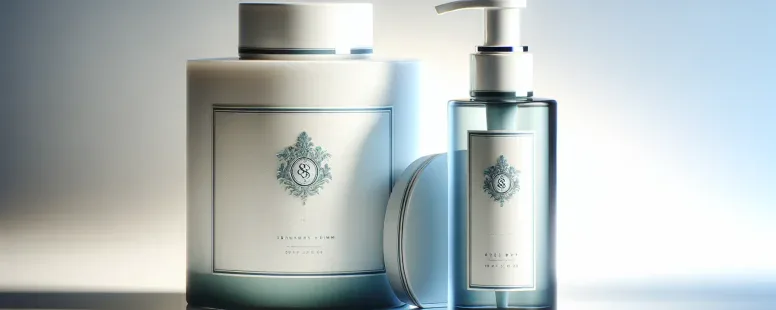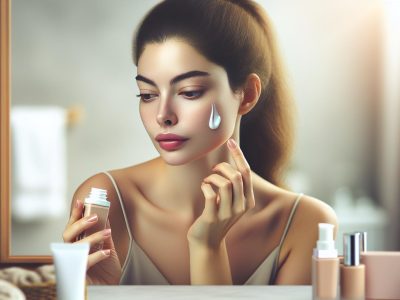Which Is Better: CeraVe or Cetaphil? A Detailed Skincare Comparison
Your skincare routine is like a puzzle, and choosing the right products can feel like finding that perfect piece. gentle yet effective care, two names often dominate the conversation: CeraVe and Cetaphil. Both promise healthy, hydrated skin, but which one truly deserves a spot on your bathroom shelf?
Overview Of CeraVe And Cetaphil
CeraVe and Cetaphil are widely recognized for their dermatologist-recommended skincare solutions. Both brands focus on addressing common skin concerns, offering gentle formulations suitable for various skin types.
Brand Background And Philosophy
CeraVe, launched in 2005, emphasizes restoring the skin barrier using ceramides. Its products integrate MultiVesicular Emulsion (MVE) technology to deliver long-lasting hydration. The brand targets individuals with dry or sensitive skin and promotes science-backed skincare.
Cetaphil, founded in 1947, prioritizes simplicity and mildness. It caters to sensitive skin needs by avoiding harsh irritants like fragrances or alcohols. Dermatologists often recommend Cetaphil as a reliable option for maintaining healthy, balanced skin without overcomplication.
Popular Products And Offerings
CeraVe’s product line includes cleansers, moisturizers, and serums enriched with ceramides and hyaluronic acid. Examples include the Hydrating Cleanser for dry skin and the Moisturizing Cream, which provides intense hydration while repairing the protective barrier.
Cetaphil offers gentle cleansers like the Gentle Skin Cleanser, known for its non-foaming formula that soothes irritation. Its Daily Hydrating Lotion is another popular choice among those seeking lightweight moisture suitable even under makeup applications.
Both brands also feature specialized products targeting acne-prone (e.g., CeraVe Foaming Facial Cleanser) or eczema-prone (e.g., Cetaphil Pro Eczema Soothing Moisturizer) conditions, showcasing their commitment to diverse skincare needs.
Key Differences Between CeraVe And Cetaphil
CeraVe and Cetaphil differ significantly in their approach to skincare, ingredients, and overall product focus. Understanding these distinctions helps you choose the brand that aligns with your skin’s needs.
Ingredients And Formulations
CeraVe centers its products around ceramides, essential lipids that restore and strengthen the skin barrier. The inclusion of hyaluronic acid provides deep hydration, while niacinamide soothes irritation. For instance, the CeraVe Moisturizing Cream combines all three for dry or eczema-prone skin. MultiVesicular Emulsion (MVE) technology ensures gradual ingredient release over 24 hours.
Cetaphil emphasizes simplicity with hypoallergenic formulations free from fragrances and harsh chemicals like alcohols or parabens. Its Gentle Skin Cleanser uses non-soap surfactants, ideal for maintaining pH balance without stripping natural oils. While effective, it lacks active ingredients found in CeraVe’s lineup.
Skin Type Compatibility
CeraVe suits dry to very dry skin types due to its focus on intense hydration and barrier repair. Products like the Hydrating Facial Cleanser target sensitive or compromised skin conditions such as rosacea or psoriasis.
Cetaphil caters to a broader audience by prioritizing mildness across all skin types, including acne-prone or oily skin. Lightweight options like Daily Hydrating Lotion combine subtle moisture with quick absorption—ideal under makeup or during humid weather.
Pricing And Availability
Both brands are affordable compared to luxury skincare lines but vary slightly in price points based on ingredients and packaging size. A 16 oz bottle of CeraVe Hydrating Cleanser costs around $14-$16 in most US drugstores; Cetaphil Gentle Skin Cleanser falls within $10-$12 for a similar size.
Widely available online and in stores worldwide, both brands ensure accessibility but may offer region-specific availability for certain products.
CeraVe: Pros And Cons
CeraVe is known for its dermatologist-developed products designed to restore and maintain the skin’s natural barrier. Its use of ceramides, hyaluronic acid, and advanced delivery systems sets it apart in skincare.
Benefits Of Using CeraVe
- Barrier Restoration
CeraVe incorporates three essential ceramides that replenish the skin barrier, preventing moisture loss and protecting against environmental stressors. For example, the Moisturizing Cream helps alleviate dryness associated with eczema or seasonal changes.
- Long-Lasting Hydration
Utilizing MultiVesicular Emulsion (MVE) technology, CeraVe delivers hydration over 24 hours by slowly releasing active ingredients. Products like the Hydrating Cleanser exemplify this benefit by balancing cleansing with moisture retention.
- Non-Irritating Formulas
The inclusion of niacinamide calms redness and irritation while supporting an even-toned complexion. This makes products like the Foaming Facial Cleanser suitable for sensitive or acne-prone skin types.
- Broad-Spectrum Applications
From cleansers to sunscreens, CeraVe addresses diverse needs such as anti-aging concerns and sun protection without compromising on gentleness or effectiveness.
- Widely Accessible
Available at drugstores globally, it’s affordable compared to many high-end brands offering similar benefits without added luxury costs.
Drawbacks To Consider
- Heavier Textures
Some users find moisturizers like the Healing Ointment too thick or greasy when applied under makeup or during humid weather conditions.
- Minimal Fragrance-Free Options
While most formulations are free from added fragrances, a few include masking scents that may not suit individuals with heightened sensitivities.
- Potential Breakouts For Oily Skin Types
Certain products can clog pores if improperly matched to oily or combination skin—like using cream-based moisturizers instead of gel-based alternatives designed for lighter application.
- Limited Vegan Certifications
Cetaphil: Pros And Cons
Cetaphil is renowned for its gentle approach to skincare, prioritizing simplicity and effectiveness. Its formulations cater to sensitive skin while avoiding common irritants, making it a trusted choice for many.
Benefits Of Using Cetaphil
- Gentle Formulations
Cetaphil products are hypoallergenic and free from fragrances, alcohols, or harsh chemicals. This makes them suitable for individuals with conditions like rosacea or eczema. For instance, the Gentle Skin Cleanser provides effective cleansing without stripping natural oils.
- Universally Suitable
The brand’s mildness ensures compatibility across all skin types. Whether you have acne-prone or combination skin, products like the Daily Hydrating Lotion offer lightweight hydration without clogging pores.
- Dermatologist Recommended
Many dermatologists endorse Cetaphil due to its non-irritating properties and minimalistic ingredient lists. It’s often recommended post-procedures like chemical peels as it’s unlikely to exacerbate sensitivity.
- Affordable And Accessible
Cetaphil offers cost-effective solutions widely available in drugstores and online retailers globally. Popular items like the Moisturizing Cream combine quality with affordability, appealing to budget-conscious buyers.
Drawbacks To Consider
- Limited Active Ingredients
Compared to brands like CeraVe that incorporate ceramides or niacinamide extensively, Cetaphil focuses more on basic care rather than targeting specific concerns such as anti-aging or severe dryness.
- Potential Lack Of Hydration For Some Users
While lightweight formulas suit oily skin well, they may not provide adequate moisture for those with extremely dry skin. Products such as the Rich Hydrating Cream may not match the efficacy of heavier moisturizers enriched with ceramides.
- Minimal Vegan Certifications
Though safe and mild, not all Cetaphil products meet vegan standards due to certain ingredients derived from animal sources—a potential drawback if sustainability matters are important in your skincare choices.
Which Is Better For Specific Skin Concerns?
CeraVe and Cetaphil cater to a variety of skin concerns, but their unique formulations make them suitable for specific needs. Understanding your skin’s requirements helps you choose the right brand.
Acne-Prone Skin
CeraVe suits acne-prone skin with its inclusion of niacinamide and ceramides, which reduce inflammation and repair the barrier. Products like CeraVe Foaming Facial Cleanser balance excess sebum without over-drying. Cetaphil also offers solutions like the Gentle Clear Clarifying Acne Cream Cleanser, formulated with salicylic acid to unclog pores while maintaining hydration. If you need fragrance-free options that avoid irritation during breakouts, both brands deliver effective choices.
Dry And Sensitive Skin
For dry or sensitive skin, CeraVe’s Moisturizing Cream is enriched with hyaluronic acid and ceramides to lock in moisture for up to 24 hours. Its MVE technology ensures gradual release of hydration throughout the day. On the other hand, Cetaphil’s Rich Hydrating Night Cream provides lightweight moisture using glycerin and pro-vitamin B5, making it ideal under makeup or as part of evening care routines. Both brands avoid harsh irritants; but, CeraVe’s heavier textures may feel greasy on oily-sensitive combinations.
Aging Skin
When targeting signs of aging such as wrinkles or fine lines, CeraVe offers an edge due to active ingredients like retinol found in products such as the Resurfacing Retinol Serum. These enhance collagen production while smoothing uneven texture over time. While Cetaphil doesn’t include retinol in most formulations, its Daily Hydrating Lotion supports mature skin needing basic hydration without clogging pores.
Expert Opinions And Dermatologist Recommendations
Dermatologists frequently recommend both CeraVe and Cetaphil for their gentle formulations that cater to a variety of skin types. These brands are often highlighted in dermatology due to their focus on non-irritating ingredients and effectiveness in addressing common skin concerns like dryness, sensitivity, acne, and eczema.
Experts consider CeraVe as a strong option for individuals with dry or compromised skin barriers. Its inclusion of ceramides—lipids found in the skin—and MVE technology ensures hydration lasts throughout the day. Dermatologists point out its ability to support barrier repair, particularly benefiting those with conditions like eczema or psoriasis. For example, the CeraVe Moisturizing Cream is frequently recommended for patients needing intensive hydration without irritation.
In contrast, Cetaphil is praised by dermatologists for its simplicity and hypoallergenic nature. It avoids harsh irritants such as fragrances and alcohols while maintaining effective cleansing and moisturizing properties. This makes it an ideal choice for sensitive or reactive skin types. Cetaphil’s Gentle Skin Cleanser is often cited as a go-to product in clinical settings due to its non-stripping formula that maintains the natural pH balance of your skin.
Some professionals favor one brand over the other based on patient needs rather than overall superiority. For instance, if you have oily yet sensitive skin prone to breakouts, experts might lean towards recommending Cetaphil’s lightweight moisturizers or cleansers over CeraVe’s potentially heavier textures.
Real-life testimonials from skincare specialists highlight these preferences: Dr. Rachel Nazarian (Schweiger Dermatology Group) has noted that CeraVe’s active ingredients like niacinamide make it suitable for calming redness associated with rosacea; meanwhile, Dr. Mona Gohara emphasizes how Cetaphil remains an excellent universal pick for all ages due to its minimalist approach.
Although both brands come highly rated by professionals globally—spanning endorsements from organizations like the National Eczema Association—you should consult a dermatologist when choosing between them if you’re dealing with specific conditions requiring tailored solutions.
Conclusion
Deciding between CeraVe and Cetaphil eventually depends on your skin type, personal preferences, and specific skincare needs. Both brands offer reliable, dermatologist-approved solutions that cater to a variety of concerns while remaining affordable and accessible.
If you prioritize restoring your skin barrier with ceramides or need targeted hydration for dry or eczema-prone skin, CeraVe might be the better fit. On the other hand, if you prefer hypoallergenic formulations that focus on simplicity for sensitive or acne-prone skin, Cetaphil is an excellent choice.
Whichever brand you choose, remember that consistency in your skincare routine and understanding what works best for your unique skin are key to achieving healthy, glowing results.
by Ellie B, Site owner & Publisher
- What Is Stronger: Nylon or Polyester - February 24, 2026
- How To Tell Alligator From Crocodile - February 24, 2026
- What Is Better: HMO or PPO - February 23, 2026







